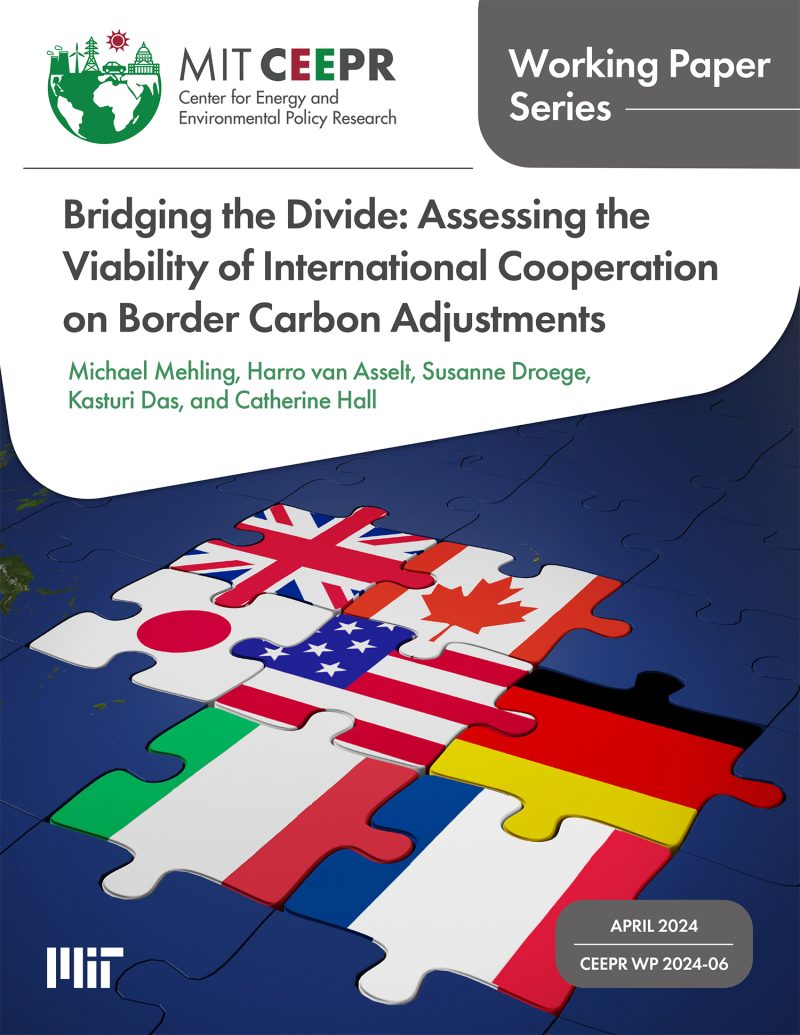Bridging the Divide: Assessing the Viability of International Cooperation on Border Carbon Adjustments
Michael Mehling, Harro van Asselt, Susanne Droege, Kasturi Das, and Catherine Hall
April 2024
International cooperation on climate change and trade is intensifying, as highlighted by numerous initiatives launched at the multilateral, plurilateral, and bilateral levels. This is an encouraging development, signaling the major role of trade policy in supporting decarbonization efforts and facilitating adaptation to climate change. Yet, at the same time, many of these initiatives eschew one of the most contested issues at the interface of trade and climate policies: Border Carbon Adjustments (BCAs). Europe’s Carbon Border Adjustment Mechanism (CBAM) is unlikely to be the last or only BCA, with various jurisdictions contemplating similar measures as they adopt increasingly ambitious climate change mitigation policies and pursue other policy objectives, such as improved national security or industrial policy. With many jurisdictions pursuing their own BCA designs and implementation strategies, however, comes an increased risk of uncoordinated proliferation of divergent approaches, which in turn can translate into greater uncertainty, higher transaction and administrative costs, and detrimental repercussions for international cooperation, including climate diplomacy. This Working Paper argues the case for international cooperation on or relating to BCAs, and assesses the prospects for such cooperation. It applies an analytical framework that examines both the “input legitimacy” and “output legitimacy” of international cooperative initiatives, focusing on three emerging models of cooperation relating to BCAs, namely the G7 Climate Club, the transatlantic talks on a Global Arrangement on Sustainable Steel and Aluminum (GASSA), and the Inclusive Forum on Carbon Mitigation Approaches (IFCMA) launched by the Organisation for Economic Co-operation and Development (OECD).



